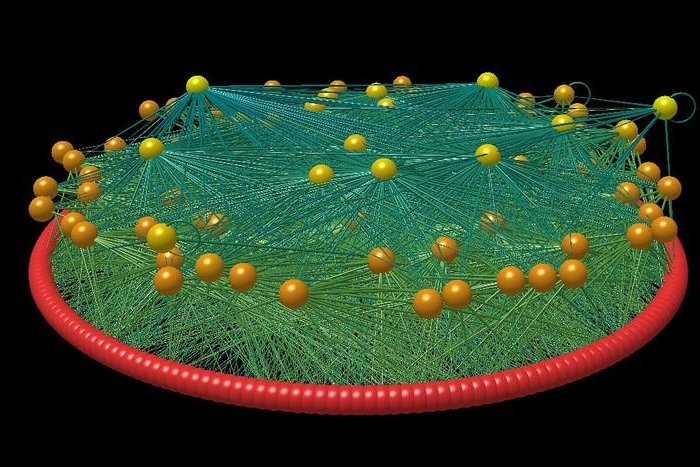Researchers used data from archaeological sites in the American Southwest to reconstruct the food webs -- including predators, prey and producers -- of the Ancestral Puebloans. Photo by Stefani Crabtre/Penn State
April 10 (UPI) -- By reconstructing the complex food webs of Ancestral Puebloan southwestern United States, researchers hope to yield insights into the the ecological consequences of modern climate change.
"As southwestern archaeologists, we know that Ancestral Puebloan people were intrinsically connected to the environment," Stefani Crabtree, postdoctoral fellow in human behavioral ecology at Penn State University, said in a news release. "But, most food webs have omitted humans."
Crabtree and her colleagues incorporated humans into food webs reconstructed using the archaeological records at three Ancestral Puebloan sites in the American Southwest. The researchers created "knockout" food webs, which approximate the ecological ramifications of the addition or disappearance of a predator or prey species.
"Knockout food webs are one of the best ways to understand how people interact with the environment," said Crabtree. "Because we can remove something, predator or prey, and see what would happen."
When Puebloan peoples began settling parts of the Southwest in the sixth century, they significantly altered a variety of plant-animal and predator-prey relationships.
"When people show up in the area around A.D. 600 they bring corn," Crabtree said. "It takes a while for critters to get used to it, but eventually, everything that eats vegetation, eats corn and prefers it."
Planting corn alters local vegetation, as well as the feeding habits of herbivores. The Puebloans' deer hunting also changed local food webs. When deer stocks ran low, Puebloans began domesticating turkeys. To feed the turkeys, corn production was increased, further altering the ecosystem.
The new research, detailed in the Journal of Archaeology, is helping scientists identify the ways ecological and climatic shifts impact food webs and the decision-making of its members.
For Puebloans -- and other animals -- dramatic ecological changes and resource-depletion often triggered migrations. For modern humans, migration isn't really an option.
"We didn't have a long-term plan during the 600 years of Ancestral Pueblo habitation in the Mesa Verde region," said Crabtree. "We don't have a long-term plan today either. We don't even have a four-year plan. Some people are pushing us to look closely at climate change."















